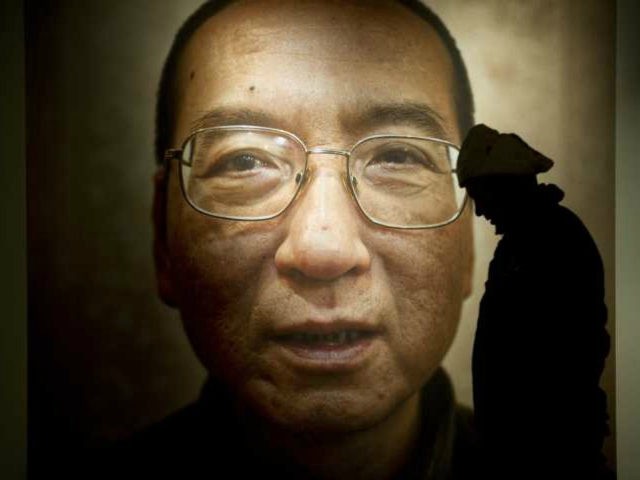A column in the Chinese state-run Global Times has denounced anti-communist dissidents as “losers” for condemning China’s treatment of Liu Xiaobo, its only Nobel Peace Prize winner, and warned that Liu’s death proves all defiance of the Communist Party “only end in failure.”
Liu, who won the prize following decades of peaceful advocacy against the communist state, died last week following a bout with liver cancer, much of which he faced behind bars. Human rights advocates condemned China for not allowing Liu to travel abroad for medical care that could have saved his life; his wife Liu Xia remains behind bars.
The Global Times used Liu’s death to argue that “it’s an illusion to expect that China and the West can mutually accept each other’s public opinion and values.”
“In this contention that is of historical significance, China is defying pressure from the West and strives to succeed along the path leading to its rise,” the column argues. “Successive waves of dissidents that worship Western values have been marginalized, suggesting the West is losing the initiative in suppressing China’s rise.”
“Liu Xiaobo’s personal tragedy proves that surrendering to the West in politics will only end in failure,” the column concludes.
The authors of the article take special care to insult other Chinese dissidents, referring to their lives as a “waste” and calling dissidents who have escaped the grasp of the Chinese state “losers.” “Dissidents exiled overseas accused the Chinese government of removing any trace of Liu Xiaobo through having a sea burial, and instigated the message that his death be turned into an ‘opportunity’ to change China,” the article notes. “Most of these losers, increasingly marginalized overseas, are trying every means to reboot their image.”
“Dissidents exiled overseas accused the Chinese government of removing any trace of Liu Xiaobo through having a sea burial, and instigated the message that his death be turned into an ‘opportunity’ to change China,” the article notes. “Most of these losers, increasingly marginalized overseas, are trying every means to reboot their image.”
At least one prominent U.S.-based dissident, the human rights advocate Chen Guangcheng, has accused China of preventing Liu from receiving medical care abroad to ensure his death. “We need to see his death as not a natural, normal death,” Chen told the Agence France-Presse. “He was killed by the CCP (Chinese Communist Party), deliberately killed by them.”
He went on to suggest that Liu may have suffered from something other than cancer caused by torture within the Chinese prison system, and foreign doctors “were likely to discover what was really wrong with him and would probably reveal that they had been harming him with medication or some such things.”
Unlike the Global Times, the Chinese government’s People’s Daily published a story lamenting Liu’s death as “a huge misfortune” while also condemning those who have “politicized it.” The story also claimed that those who have condemned China for its ill treatment of the dissident are the ones not truly concerned for his well-being, not his Chinese government captors.
“By granting him the Nobel Prize, the West has shown that Liu is a pawn in its game to undermine China. Now some are using the moment of his death to tarnish China’s image on the world stage and encourage more dissent,” the article claimed. “This makes one wonder if the pressure was really about saving Liu, or more about promoting Western ideas for the purpose of bringing about certain political changes in China.”
Liu had been in prison since 2009 for “inciting subversion of state power.” He had long been a part of the nation’s anti-communist dissident movement and had advocated for the rights of Tiananmen Square protesters before the “crimes” that landed him in prison in 2009. That year, Liu organized alongside hundreds of democracy activists, all of whom signed a manifesto demanding freedom and respect for human rights in China. Liu – who was, in addition to a human rights activist, an academic and poet – also criticized the Chinese government’s “bellicose nationalism,” which has taken on a larger role in the nation’s political rhetoric as its markets have opened and communist fervor dimmed.
Prior to publishing its own articles on Liu’s death, the Chinese government moved swiftly to censor any praise of Liu on social media. The government imposed search filters on social media outlets like Sina Weibo and WeChat that automatically banned images of empty chairs – representing the Chinese government’s refusal to allow Liu to travel to pick up his Nobel prize – and burning candles.

COMMENTS
Please let us know if you're having issues with commenting.